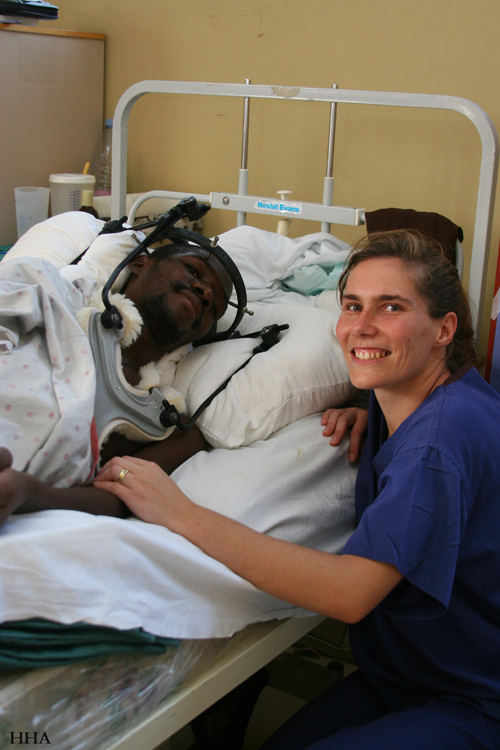
When an earthquake ranking a 7.0 on the Richter scale shook Port-au-Prince in 2010, millions of pounds were raised by international aid organisations to help rebuild and repair the damaged areas. Four years later, half of the money has been used. While some progress has been made, there is little evidence of this in the country’s infrastructure, morale and political stability. Now that the spotlight has moved on, thousands are still without homes, food and hope for their future.
'When a group of 20-somethings from America or Europe go to Haiti for mission, it is very difficult for the 40-something year old Haitian to maintain a sense of self-worth when young people are coming in to ‘fix their problems’,' reflects Steve Sanderson, BMS Manager for Mission Projects. Without this self-belief or the ability to see an end to their poverty, progress can be difficult.
'If the message that Haitians can’t fix their own problems is perpetually re-enforced, then why would you believe in yourself or even trust fellow Haitians?' says Steve.
One method of countering some of the negativity is through micro-financing projects. BMS mission workers, Andy and Jutta Cowie, have been starting self-help groups all over the country and are getting encouraging results. 'For the project to work, the groups have to trust each other. They have to trust that when someone takes a loan, they will use the money to start a business and pay it back,' says Andy.
The Cowies told the story of Melanie* from the north-eastern town of Plaisance, who went from having no future prospects to being a successful businesswoman thanks to the project. She took a loan, bought lorry and started collecting metal in Port-au-Prince to sell in Plaisance. Now, she has repaid her loan, is sending her children to school and glows with the independence and self-confidence she has been searching for.
Although this is a complicated issue, some may blame the government for the country’s political and mental state. 'It’s difficult to trust a government when there isn’t any infrastructure or trust a country when you’re too poor to buy into the education system and at least give your children a better chance,' says Carwyn Hill, Director of Haiti Hospital Appeal (HHA), a BMS partner organisation. 'It’s hard to trust in the health system when the majority of families have lost loved ones unjustly,' he says.
HHA has changed the prospects for many who suffered from debilitating spinal injuries after the earthquake. Founded in 2005, Carwyn, a team of doctors and HHA have been working hard to restore hope and trust to those considered cursed by their own families and friends; like the disabled Samuel. No one thought he would live long after a column fell on him during the earthquake. He survived but is paralysed from the neck down.
'Samuel never complained even after he lost his family, friends, home and mobility,' says Carwyn. Now he is the hospital’s chaplain. Samuel’s humility and immense faith have changed the lives of patients in the ward and helped him find peace as well as his vocation.
There is a lot of scepticism from ordinary Haitians about how effective the aid effort has been. But, organisations such as BMS and HHA are working hard to restore the people’s trust in outside organisations who have remained in the country even after all the cameras have gone. Progress has been made, but there is still much work to be done.